





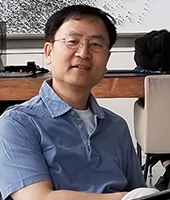
Dept. of Biological Science, University of Ulsan
Professor, University of Ulsan
Korea
Lecture Title: Protistology in Korea: Past, Present, and Future
Prof. Shin has made significant contributions to the systematics of ciliate protistology and was the president of the Korean Society of Protistologists (KSOP) and the Korean Society of Systematic Zoology (KSSZ). Over three decades, he and his collaborators have focused on the species diversity and phylogeny of the ciliated protists. For more than six years, he served as an Editor-in-Chief of the journal (Animal Systematics, Evolution and Diversity, ASED) of the KSSZ. He currently serves as Subject (Protozoa) Editor of the journal Zootaxa and as an Editorial Board Member of the Journal of Eukaryotic Microbiology. He has also been re-elected as the President of KSOP to foster the next generations of Korean protistologists.

Institute for Comparative Genomics, Dept. of Biochemistry and Molecular Biology, Dalhousie University,
Canada
Lecture Title: New insights into the origin and early evolution of eukaryotes from phylogenomic analyses.
Andrew has made important contributions to evolutionary protistology and was the founding Director of the Centre for Comparative Genomics and Evolutionary Bioinformatics at Dalhousie University (now the Institute of Comparative Genomics, icgenomics.ca). Over two and a half decades, Andrew and his collaborators have employed comparative genomic, phylogenetic, and other ‘omic’ approaches to clarifying how eukaryotic cells and their symbiont-derived organelles originated and diversified in the past ~2 billion years. Other topics of particular interest include adaptations to low oxygen conditions in anaerobic protists and clarifying the role of lateral gene transfer in these adaptations, as well as the development methods and models for ‘deep-time’ phylogenetic inference. Andrew has published more than 200 peer-reviewed articles in these fields and has received numerous accolades for his work, including being appointed as a Tier I, Canada Research Chair, and receiving an award of a Fellowship in the Royal Society of Canada.
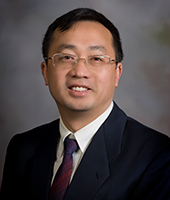
Professor, Member of the U.S. National Academy of Sciences
Virginia Tech
USA
Lecture Title: A Paleontological Perspective on the Early Evolution of Eukaryotes (Mostly Protists)
Shuhai Xiao is a paleobiologist and geobiologist who studies the interactions between the biosphere and its environments at critical transitions in Earth history, particularly during the Ediacaran-Cambrian transition. He integrates paleobiological, sedimentological, geochemical, and phylogenetic data to shed light on important evolutionary events, including the origin and diversification of eukaryotes, multicellular organisms, and animals. He is a member of the U.S. National Academy of Sciences and a fellow of the Americal Association for the Advancement of Science.
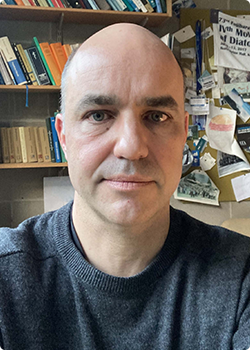
School of Environmental Sciences, University of East Anglia UK
Lecture Title: Adaptive Evolution in Protists: Diatoms as a Test Case.
He obtained his MSc (1998) in Biology with emphasis on Biological Oceanography at the Christian-Albrechts University in Kiel (GEOMAR) and the PhD (2003) at Bremen University (AWI), Germany. Before joining the University of East Anglia (UEA) in 2007, most of his PostDoc research was conducted with a fellowship from the German Academic Exchange Service (DAAD) in the School of Oceanography, University of Washington (E.V. Armbrust lab) in joint cooperation with the Biotechnology Center, University of Wisconsin (M.R. Sussman lab), USA. Before he was promoted to Professor (Personal Chair) in 2014, he was Reader (2012-2014) and had a Research Councils UK (RCUK) Academic Fellowship (2007-2012). In 2019, Prof. Mock was appointed Guest Professor at the Ocean University of China, and in 2024, he received the CAS President’s International Fellowship (PIFI) at the Institute of Oceanology, Qingdao, China.
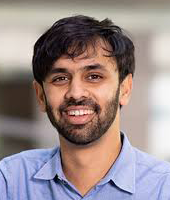
 EMBO young investigator lecture
EMBO young investigator lecture
EMBL (European Molecular Biology Laboratory)
Germany
Lecture Title: Evolution and diversity of mitosis
Gautam is an evolutionary cell biologist and Group Leader at the European Molecular Biology Laboratory (EMBL). His research group investigates the evolution and diversity of mitosis and nuclear remodelling across eukaryotes using a combination of comparative cell biology, experimental evolution and genomics in multiple microbial models. Gautam started his group at EMBL in early 2021, after a postdoc at UCL with Buzz Baum. Gautam holds a PhD from Stanford University and a research MSc. from NCBS in Bangalore. Gautam is an ERC Investigator (2023-2028), an EMBO Young Investigator (2025-2028), a FEBS Excellence Fellow (2024-2026); a previous holder of a Marie-Sklodowska Curie postdoctoral fellowship (2017-2018) and a Stanford Graduate Fellowship in Science and Engineering (2009-2012).
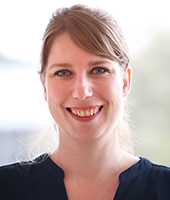
Max Planck Institute for Marine Microbiology
Germany
Lecture Title: Ecology of a novel protist symbiosis
Jana’s research focuses on beneficial interactions between eukaryotic microbes and bacterial symbionts, particularly those that affect the biogeochemical cycling of nitrogen. Jana and her group study the ecological role, diversity and physiology of protist symbionts in groundwaters, freshwater lakes, and the ocean, using a variety of biogeochemical, molecular and imaging techniques, most notably fluorescent microscopy and nanoSIMS. Jana received her PhD in 2011 from the Max Planck Institute for Marine Microbiology, Bremen, Germany. Since 2018, she has been heading the research group ‘Greenhouse Gases’ there.

Professor
Ocean University of China, China
Lecture Title: Regulatory mechanisms and functional divergence of DNA N 6 -methyladenine(6mA) in ciliates
Shan is a leading scientist in the field of epigenetics, by using the ciliated protozoa Tetrahymena thermophila as the model system. Her current research focuses on understanding the regulation mechanism of DNA N6-methyladenine (6mA), as well as the functional divergence and biological significance of 6mA in eukaryotes. Her work has provided key evidence supporting eukaryotic 6mA as a bona fide epigenetic mark and has offered new insights into the divergent evolution of eukaryotes from the unique perspective of DNA methylation. She has won the Hunter Award and the Holz-Conner Award from the International Society of Protistologists. She is currently the Vice Chair of Ciliate Advisory Board and the Executive Council member of Chinese Society of Protozoology.
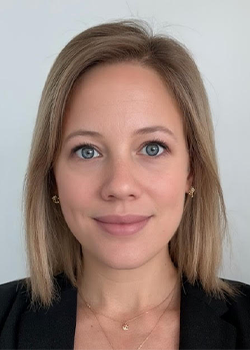
Associate Professor
University of Rhode Island, USA
Research Director
Université Paris-Saclay, France
Lecture Title: The Origin and Early Evolution of Eukaryotes
Laura is an evolutionary microbiologist focusing on the origin and evolution of eukaryotes, with particular emphasis on the archaeal ancestry of eukaryotes, the origin and evolution of mitochondria, and the development of key eukaryotic cellular systems during eukaryotic diversification. Dr. Eme has a strong background in molecular phylogenetics and comparative genomics, which she uses to study the origin and evolution of eukaryotic cells, focusing on microbial diversity. She explores topics such as the archaeal ancestry of eukaryotes, mitochondrial evolution, endosymbiosis, horizontal gene transfer, and the ecological forces driving genomic diversity. She was awarded the 2023 Hutner Prize by ISOP for her contributions to understanding the origins and early evolution of eukaryotes. Laura is also an Associate Editor for several journals in molecular evolution including Genome Biology and Evolution, Molecular Phylogenetics and Evolution and Journal of Molecular Evolution.
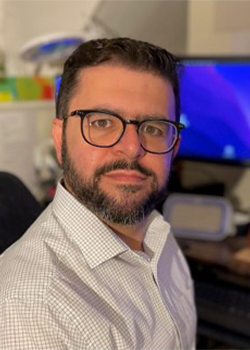
Reader in Molecular and Evolutionary ParasitologyGraduate
Studies Lead (Taught), University of Kent
UK
Lecture Title: Decoding the Gut’s Enigma: Unravelling the Role of Blastocystis in Health and Disease
Dr. Anastasios D. Tsaousis is a Reader in Molecular and Evolutionary Parasitology at the University of Kent, UK. His research focuses on microbial eukaryotes, particularly Blastocystis, Cryptosporidium, and Naegleria, investigating their evolution, host interactions, and roles in the microbiome. He is the Chair of the COST Action Blastocystis under One Health and has played a pivotal role in advancing knowledge on the ecological and medical significance of Blastocystis. Dr. Tsaousis obtained his PhD in Molecular Cell Evolution from Newcastle University and has held research positions at Dalhousie University (Canada), Charles University (Czech Republic), and the University of Saskatchewan (Caanda). His work has led to significant discoveries on mitochondrial-related organelles, anaerobic adaptation, and host-microbe interactions. He has received numerous research grants and awards, including the prestigious 2022 Hutner Achievement Award from the International Society of Protistologists, recognising his outstanding contributions to protistology. As an active mentor and scientific communicator, Dr. Tsaousis has led international collaborations and training initiatives to enhance protist research worldwide. His work integrates molecular biology, genomics, and microbiome research to decipher the complex relationships between parasites and their hosts.
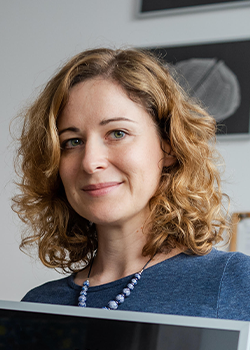
Associate Professor
University of Warsaw, Poland
Lecture Title: Winds of change in protistology: methodological breakthroughs and expanding scientific networks
Anna is a leading expert in endosymbiosis and the evolution of organelles in protists. Her team focuses on the evolution of eukaryotic cells, the study of the diversity of microbial eukaryotes and the investigation of their interactions with other microorganisms, with symbiosis being a central theme. Her research interests include the origin and evolution of endosymbiotic organelles such as mitochondria and chloroplasts as well as the endosymbioses of various microbial eukaryotes. By unravelling the complexity of these relationships, she aims to deepen our understanding of endosymbiosis and its impact on ecosystem functioning. Anna has published in prestigious journals such as PNAS, Current Biology, and Molecular Biology and Evolution. She has received numerous national awards for her scientific contributions, including the L’Oréal-UNESCO For Women in Science Award in 2021. Recently, she was recognized as a FEMS European Academy of Microbiology Fellow. Anna is a Past President of the International Society of Protistologists.
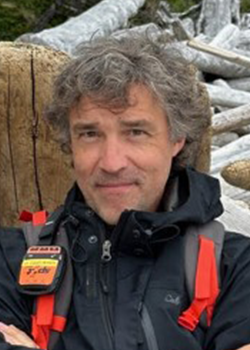
Professor
University of British Columbia, Canada
Lecture Title: It all starts with a joke: a “genomics guy” in the field.
Patrick is an evolutionary biologist and protistologist working on a wide range of protist groups. Work in his lab focuses broadly on symbiosis, and especially endosymbiosis, with protists playing roles as either host or symbiont. Patrick’s research has touched on organelle evolution and the tree of eukaryotes, horizontal gene transfer, and intracellular parasites of both protists and animals. Patrick is the Past President of ISOP.